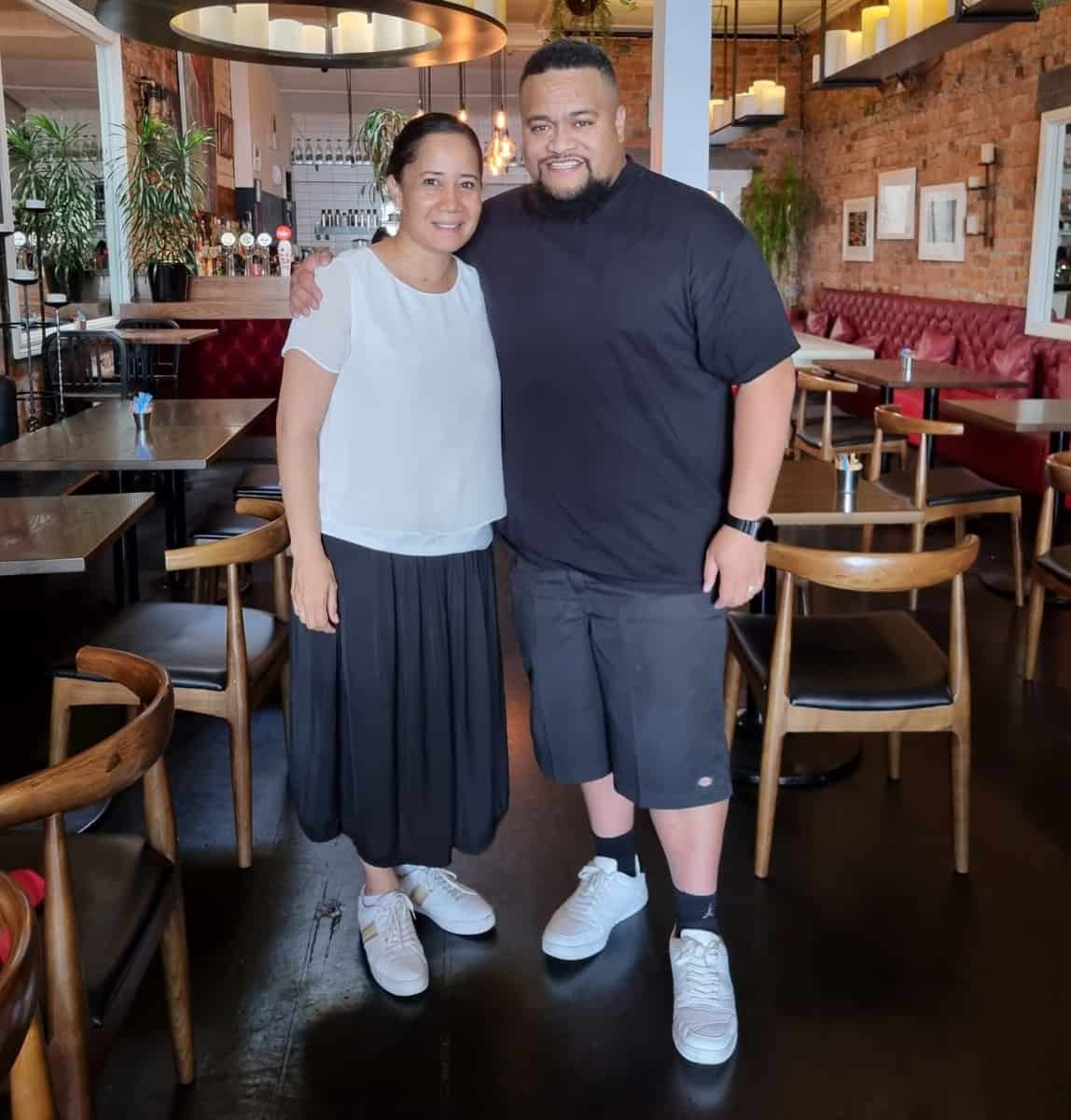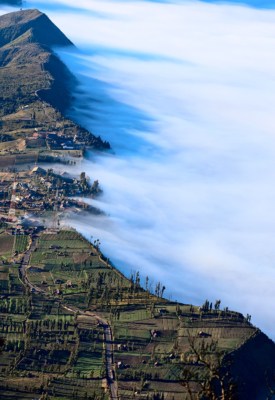Image: Dr Manumatavai Tupou-Roosen with Edmond S. Fehoko, Auckland.
“It is time to create things for ourselves, to create established standards of excellence that match those of our ancestors” – Epeli Hauofa.
Research on developmental leadership in the Pacific has tended to focus on political leaders and regional politics. We know very little about the leadership pathways in and through Pacific regional organisations, despite these organisations being fundamental to the region’s development. DLP’s Transnational Leadership in the Pacific Islands project seeks to understand the pathways that see leaders become heads of regional organisations. The stories of Pacific regional leaders will contribute to the global study of developmental leadership but more importantly inspire future generations of Pacific leaders.
This blog offers a vignette based on a recent interview (coincidentally conducted on International Women’s Day) with Dr Manumatavai Tupou-Roosen, the first woman Director-General of the Pacific Islands Forum Fisheries Agency (FFA). Fishing activities are critical to Pacific livelihoods and the FFA, established in 1979, helps countries to sustainably manage their fishery resources by strengthening national capacity and regional solidarity. It highlights the patterns and themes—about education, mentors, support networks, gender and familial relationships—that life stories can reveal about leaders.
Dr Tupou-Roosen is a proud Tongan who traces her origins to Ha’apai and Niua Islands outside mainland Tonga. Affectionately known as Manu, she reflects vividly on how her female ancestors inspired her, from the struggles and sacrifices of her upbringing in Tonga, to her educational journey in the Pacific and New Zealand:
“A lot of my drive in the work that I do is because of the strong females in my family like my great-great-grandmother, great-grandmother, my nana and also my mother.”
Dr Tupou-Roosen’s career in Pacific fisheries began as an undergraduate law student at the University of Auckland. In 1997, she completed a Master of Law (First Class Honours) focusing on International Fisheries. She then graduated with a PhD in Law in 2004, focusing on international and regional fisheries compliance.
“I was inspired when a Professor started presenting environmental law and its impacts on the tuna fisheries in the Pacific region. I guess from there I was hooked.”
Before assuming her current role, Dr Tupou-Roosen researched and worked in fisheries for over 20 years, including over a decade as the head of FFA legal services. There, Dr Tupou-Roosen was responsible for providing legal and strategic advice on significant agency-wide issues.
As Director-General, Dr Tupou-Roosen’s goal is to ensure that FFA’s work makes a positive difference in the lives of Pacific people. She is firmly committed to her leadership being rooted in cooperation. Her critical priorities for FFA are to maintain and enhance regional solidarity; maximise economic and social benefits through the sustainable use of offshore fisheries resources; and combat illegal, unreported and unregulated fishing. One of the main challenges is to ensure inclusivity for the entire region:
“It is an honour and very humbling to have this role [Director General] and to be entrusted by our members [Pacific states] … When I first started in FFA, it was an amazing vision to bring our Pacific countries together that includes New Zealand and Australia to manage our tuna resources… I will always support any project and initiative that is all inclusive with any Pacific country from Aotearoa right up to Northern Pacific, an area that is largely ignored.”
Dr Tupou-Roosen attributes her success and leadership in Pacific fisheries to her academic and professional pursuits alongside her Tongan culture and humble beginnings. Her parents’ sacrifice and guidance has been and remains a crucial motivation for success:
“Part of my drive was due to my parents’ sacrifice to allow me to have an education in New Zealand. Everything did not come easily. What is very humbling is that I might have these new ideas for our [Pacific] people and FFA, and I will share it with my Mum and then she will always ground me with humble beginnings.”
The fact that Dr Tupou-Roosen still leans on her parents for professional support and guidance demonstrates the importance of family across an entire lifespan and career. Often parents are thought of at the beginning of a leadership journey in terms of nurturing children and supporting them but less in terms of being seen as ongoing counsel.
Dr Tupou-Roosen’s close relationship with her mother and the strong leadership and role modelling of women in her own family inspires her to encourage and motivate young Pacific women into regional leadership roles, particularly in fisheries.
“Women have long contributed to the growth of the fisheries sector in more traditional areas, and we warmly thank these women for opening up the pathways for the future. Gender parity in fisheries will benefit us all.”
The Pacific Community (SPC) estimates that women do 50 percent of traditional fishing activities, but their active participation in the fisheries sector is invisible and largely undocumented. As the first Pacific woman to lead FFA, Dr Tupou-Roosen is a much-needed visible example of the contribution Pacific women make to the sector.
In sum, this vignette from our emerging research reveals that the patterns and trends that have been prominent in DLP’s work on national leaders—about education, mentors, support networks, gender and familial relationships—are also relevant to transnational leaders. As we combine Dr Tupou-Rosen’s story with others we hope to be able to reveal new insights about the unique nature of regional leadership, too.
Learn more about other findings from the research team on Transnational leadership in the Pacific Islands.








